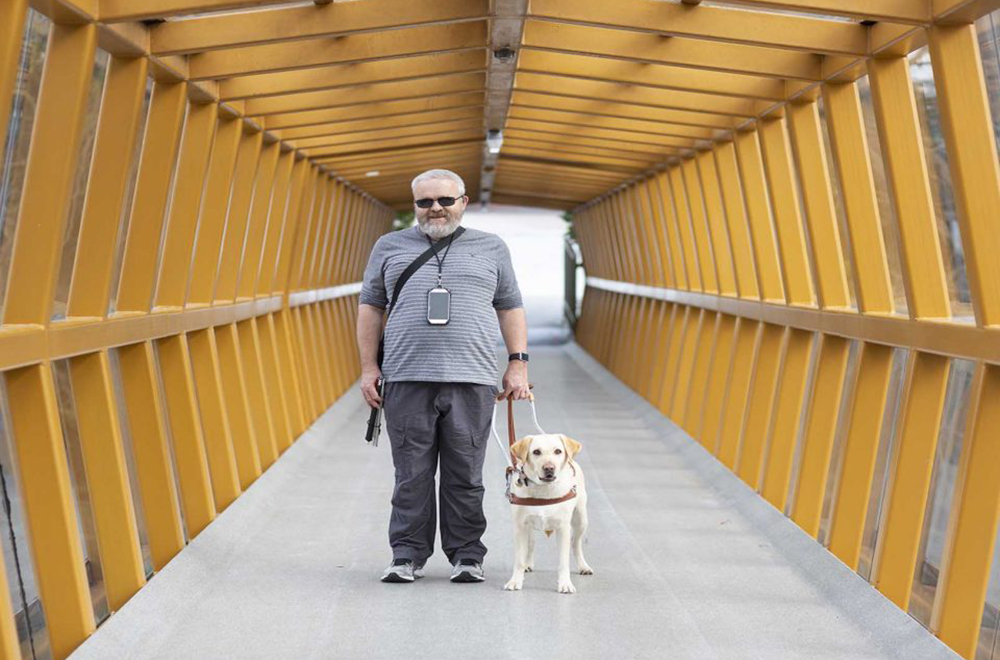Microsoft has launched Soundscape, a smartphone app for people who are blind or have low vision that uses a combination of 3D audio and location awareness to help build a mental map of their surroundings.
By setting an audio beacon on a chosen destination or a familiar landmark, users can keep track of where that location is as they make their way there. The app will also call out roads, intersections and landmarks as the user walks.
Unlike traditional navigation apps that provide turn by turn directions, Soundscape helps to build an appreciation of the space, allowing for navigational choices while at the same time enhancing the overall experience. The app can be used in combination with traditional mobility aids, like canes and dogs, to get from A to B, particularly if the environment is an unfamiliar one.
According to Vision Australia access technology advisor, David Woodbridge, pictured, Soundscape gives him confidence in an outside environment, by helping to understand what is around him. “Whether it’s a restaurant, café, railway station, walking bike/track, park, business or even a street name. It allows me to build a mental map of my neighbourhood and to make my own decisions based on the information it is providing, meaning I am always in control. It really is about feeling stress free when I’m out and about. The app is easy to use and I have my own personal markers set for different locations,” he said.
The intention of Soundscape is not to replace aids, such as a dog guide or cane, but to enable the user to more naturally and intuitively connect with their environment without disrupting their ability to attend to other tasks, activities, or interactions with other people.
Microsoft’s Artificial Intelligence and Research (AI&R) team have been working directly with Vision Australia’s Orientation and Mobility team for the last six months to test and integrate the use of Soundscape in their work with clients.
“We’ve partnered with Vision Australia as they understand the challenges that people who are blind or have low vision face every day,” Microsoft managing director, Steven Worrall said.
“It’s our mission to continue to partner with organisations like Vision Australia to make technology more accessible to the four million Australians who live with disabilities every day and specifically to the 384,000 Australians who are blind or have no vision.”

